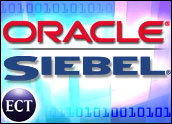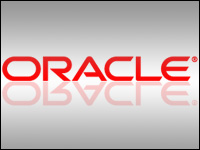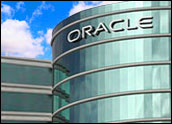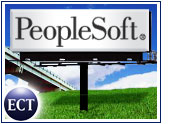
Continuing its lengthy acquisition spree, Oracle said it would buy Sweden-based HotSip, a provider of communications applications that work on Internet-protocol networks.
HotSip makes applications that work with the dominant Session Initiation Protocol (SIP) standard and enable IP telephony, presence communications, messaging and conferencing.
“The addition of HotSip’s technology will allow Oracle to build on its leadership in middleware and in carrier-grade communications infrastructures,” said Thomas Kurian, senior vice president, Oracle Server Technologies.
Terms of the deal were not disclosed. Oracle did not say how it would integrate HotSip, including whether it would move employees from Sweden to its own headquarters in the U.S. or fold them into its European operations.
HotSip’s main product is its M2CE, a carrier-grade application server program for SIP and Java 2 Enterprise Edition. It also makes a developer platform to enable carriers to custom-fit applications to the server platform.
The small firm becomes the latest in a long line of acquisitions for Oracle as it gears up to battle with leading CRM and enterprise applications maker SAP of Germany.
Rolled Up Strategy
Apart from its controversial takeover of PeopleSoft, Oracle has purchased JD Edwards and recently closed its US$5.85 billion buy of Siebel Systems.
Some see the slew of smaller firms Oracle has scooped up as being just as significant as its major purchases, since they offer an opportunity for Oracle to round out its technology portfolio, and in some cases, catch up on years of development in single transactions.
Earlier this week, Oracle said it would buy open-source database vendor Sleepycat Software, part of a push by Oracle to embrace open-source as a way of countering the success of SAP and its proprietary products.
Oracle also attempted to acquire open-source database maker MySQL, which underscores the abrupt changes in Oracle’s core database market and serves as a reminder of why it has aggressively diversified into the applications business.
Such a purchase would give Oracle the ability to offer both types of databases or a blended version that is mainly based on open-source but includes some of its proprietary features as add-ons.
All of the activity comes as Oracle is still digesting its larger acquisitions. The company is poised to begin divesting itself of a significant portion of its growing employee base; Oracle has said it would eliminate some 2,000 jobs worldwide and spend as much as $800 million on the consolidation.
New Frontiers
Meanwhile, the HotSip buy points to another development in Oracle’s market — the rise of blended networks that combine voice, video and data traffic.
SIP has rapidly emerged as the dominant standard in IP communications and is favored by many software developers because it allows for the integration of a wide range of applications. SIP is seen as a key technology component of the move toward converged networks that can handle Web-based video and telephone calls, for instance.
Robert P. Mahowald, program director for Collaborative Computing research at research firm IDC, said SIP-based placations can run the gamut from video chat to VoIP and instant messaging. He also said that many businesses that have not deployed IP services have hesitated because of security concerns, an area where SIP is seen as relatively strong.
While much attention about IP communications has focused on consumers, IP will “continue to grow into its role as tool for substantial business collaboration applications,” he added.
For Oracle, the technology will provide another way to deliver its applications across increasingly sophisticated networks and offer communications tools that can be folded into its software programs to enable, for instance, two users of the same CRM program to have a live chat at the same time they view information inside that application.




















































